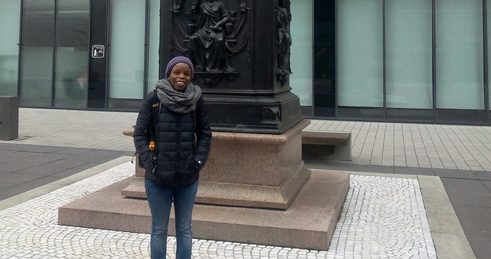Rachel Muchira from Kenya is doing a Ph.D. at the University of Leipzig.
| © Rachel Muchira
The German Federal Government wants to increase the number of foreign students. But too many still break off their studies. Gebhard Reul of the German Academic Exchange Service (DAAD) explains what German universities can do to foster integration.
Mr. Reul, you’re head of the DAAD department for mobility and mentoring programs. To what extent do German universities cultivate a welcoming culture in order to make themselves attractive to foreign students?
Foreign students have always been an important target group for German universities, and in recent years a welcoming culture geared to them has played an increasingly important role. This certainly has to do with the fact that in 2003 the DAAD set up a special program with funds from the Federal Foreign Office: as part of the “Scholarship and Mentoring Program for Foreign Students and Doctoral Candidates”, Stibet for short, we’ve awarded funds for various mentoring activities, ranging from orientation events and mentoring programs to excursions. Under this program universities can also award scholarships to foreign students and PhD candidates. Stibet has been very well received, with over 260 universities taking part in it. In addition to the activities of the universities, there are many student initiatives for promoting the integration of foreign students.
For many foreign students the German language is a major hurdle
According to a 2014 study by the German Academic Exchange Service, about 40 percent of foreign students in Germany break off their studies. “Stibet” aims to counteract this. Has the program already had an effect?
In 2014 we evaluated the
Stibet program. Most of the participating universities indicated that the number of student drop-outs had been reduced, mainly through degree scholarships. Students also benefited from introductory courses that prepared them subject-specifically for their studies. Many students come from countries with completely different educational cultures: in many regions of the world, for example, there are numerous tests spread out over the semester. It’s therefore a challenge for these students to structure their learning at a German university so that they can pass a single exam at the end of the semester. For this reason we also prepare our scholarship holders for the special features of the German educational system in orientation sessions.
What role do language barriers play in the attempt of foreign students to find their way in the German university system?
For many foreign students the German language is a major hurdle. This is because the various test providers here and abroad sometimes use different methods of evaluation. Not all students who have a C1 certificate are actually fluent in the language at this high level. Moreover most students, though prepared for the everyday language, are not prepared for the specialized languages they need for their studies. Even foreign students who do their studies in the English-language programs cope better when they learn German. That’s why a German course has been designed for all English-speaking DAAD scholarship holders, which will contribute to their better integration and better success in their studies.
Securing good supervision
-
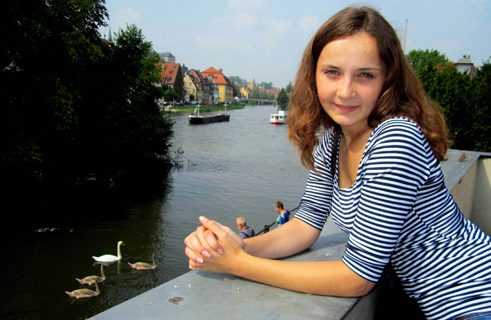 © Iryna Shymbra
© Iryna Shymbra
Iryna Shymbra from the Ukraine studies literature and media, and in 2014 was an Erasmus student at the University of Bamberg.
““University study in Germany at first was somewhat complicated. I had trouble understanding the specialist vocabulary in the lectures and reading scholarly articles was a challenge. Luckily, my dictionaries helped. Now I’m doing my master‘s in Germany. I try to talk German with my flatmate. There’s also the opportunity of working with a learning partner, but I applied too late.”
-
 © Abdoulaye Samake
© Abdoulaye Samake
Abdoulaye Samake from Mali prepared for his master’s thesis at the University of Hannover.
“I got on very well from the beginning at a German university and no problems whatever communicating. This might be because I had studied German philology and therefore had already come into contact with German. The International Office gave me support in word and deed, and initially even lent me money when my scholarship hadn’t yet been paid. There were also events where I could make contacts with other students. That was very helpful.”
-
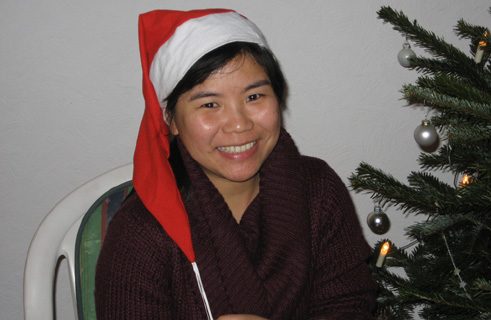 © Lu Bai
© Lu Bai
Lu Bai from China studied ethnology and Dutch Studies at the Freie Universität Berlin.
“On the whole I got on well at a German university. The academic language used by some professors and students, however, was different from the German I had learned in language courses. New for me was the writing of homework assignments. But I got the most important information for this in German courses at the university. Fortunately, in my department there was a helpful tutorial for foreign students. I also had German friends who were a great help.”
-
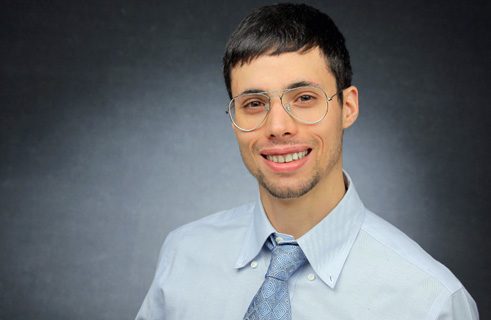 © Alessandro Vallone
© Alessandro Vallone
Alessandro Vallone from Italy studied mechanical engineering and spent an Erasmus Year at the Karlsruhe Institute of Technology (KIT).
“My courses were held mainly in German and in everyday life German is also very important. Group activities too were important, not only to get to know new people but also to internalize the language more. What we lacked at the beginning was knowledge of the laws and rules that are valid in Germany. For example, how does the housing market work? What is a tax payer’s ID? It would be good to have more support in these things.”
-
 © Anna Khitrova
© Anna Khitrova
Anna Khitrova from Russia did her bachelor degree in economics at the European University Viadrina in Frankfurt (Oder).
“As to language, I got along well at the university. One difficulty was that in Russia we study differently from in Germany: here students have more freedom and I had to learn that I had to do much of my studying at home and in libraries. Actually, I think this is better, but it was new. There were also tutors and other people at the university who helped me with problems.”
-
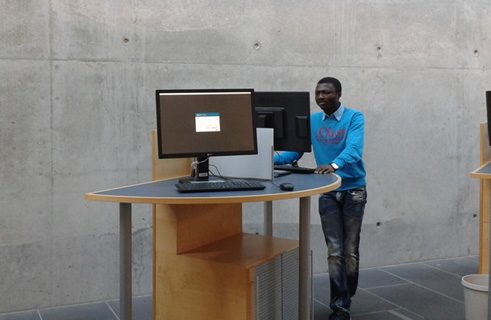 © David So
© David So
David So from the Ivory Coast did a bachelor degree in German at the University of Bamberg and is now studying history (for a master’s degree).
“The advantage at the university is that the teachers speak more clearly and slowly. My fellow students, however, sometimes used dialect and I couldn’t understand everything they said. Difficult for me at the beginning, for example, was preparing a presentation with Power Point. And I also didn’t find it easy making my own class schedule, because at home students get specified study programs. Luckily I had good friends and teachers who helped me.”
-
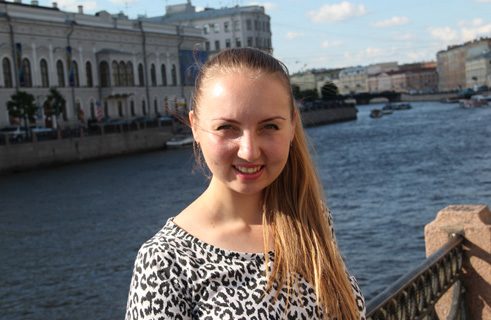 © Olga Blanuta
© Olga Blanuta
Olga Blanuta from Moldova is doing her master’s in economics at the University of Trier.
“My courses are held in English and in my group there are a lot of Russian-speaking students, so I hardly need to use German at the university. But I still attend a German course and try to speak German with other students to improve my German. We’re personally supervised by tutors, and when there are problems the professors give their help. Outside the university I speak German more often. When I don’t understand something, I ask about it. And if need be I can switch into English.”
-
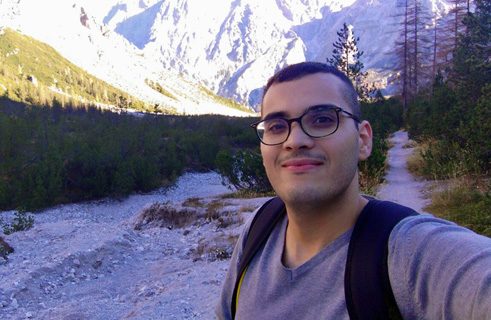 © Ayoub Mchayaa
© Ayoub Mchayaa
Ayoub Mchayaa from Tunisia is preparing for his bachelor studies in medical technology in a German course at the Brandenburg Technical University (BTU) in Cottbus.
“I understand almost everything at the university and don’t find it hard to speak German. But with writing I have a problem – for example, when in our German course we have to describe graphics. I think it’s good that the BTU has a contact point for foreign students. If I have a question, I go there. Once we made an excursion to the Alps – that was great.”
-
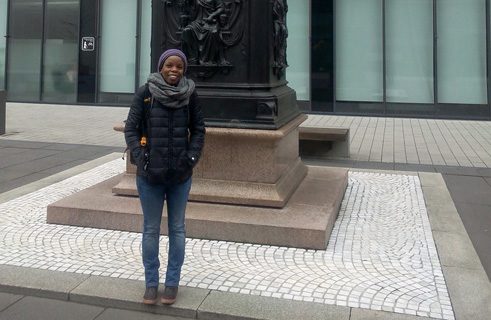 © Rachel Muchira
© Rachel Muchira
Rachel Muchira from Kenya attended a summer course at the University of Bremen and is now doing a Ph.D. at the University of Leipzig.
“In the language course there were participants from around the world and I learned an incredible amount. The university looked after the organization of our lives and there were no problems. But if you’re here to do a master’s or a Ph.D., it’s not so easy. Then you have to look after everything yourself. At my office in Leipzig and at the Administrative Office for Citizens only German is spoken. For me personally that’s not a problem because I’ve studied German.”
-
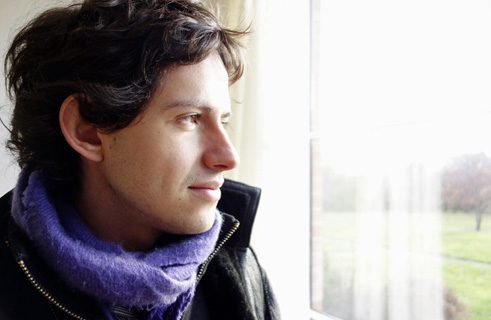 © Victor Sardenberg
© Victor Sardenberg
Victor Sardenberg from Brazil is doing his master’s in architecture at the Städelschule in Frankfurt on the Main.
“I would like to learn German but my school is too time-consuming. That is why I cannot do much more than ordering a beer. I thought it would be more problematic but there are many international students in my school and for my daily basis life in Frankfurt, I do not need any German skills. The biggest problem I have is the bureaucracy: I needed a lot of patience with language when I wanted to register. It would be a pity to live here and don't learn it, so I plan after graduating.”
What projects and activities are German universities trying out to support foreign students?
There are many good ideas. Within the Stibet program since 2015 we’ve been promoting pilot projects to improve welcoming culture at German universities. From 112 applications, we selected thirty projects that we’ll fund for three years. We’ll also draw attention to these projects, with the aim of encouraging other universities to adopt the ideas. Good supervision begins, for example, by greeting and collecting the exchange students on their arrival at the train station – this is part of our mentoring program. The university then can provide orientation assistance or workshops that offer doctoral candidates, program or exchange students support.
What additional opportunities do you see for improving the academic success of foreign students in Germany?
Together with the German Rector’s Conference, the DAAD has developed a National Code of Conduct, which came into effect in 2009 and 140 universities have already signed. The signatories undertake to comply with the standards laid down in the Code. These relate to the technical, linguistic and social support of foreign students. We’ve noticed that the Code has had a strong inward effect. At many universities it has set in motion a very important process, and this must be continued. We can only create incentives, as, for example, the Foreign Office Prize for the Excellent Supervision of Foreign Students at German Universities, which is awarded once a year and is endowed with 20,000 euros. Again and again I’ve experienced committed university staff and students who have mounted great projects for foreign students. The welcoming culture at universities lives from this.
